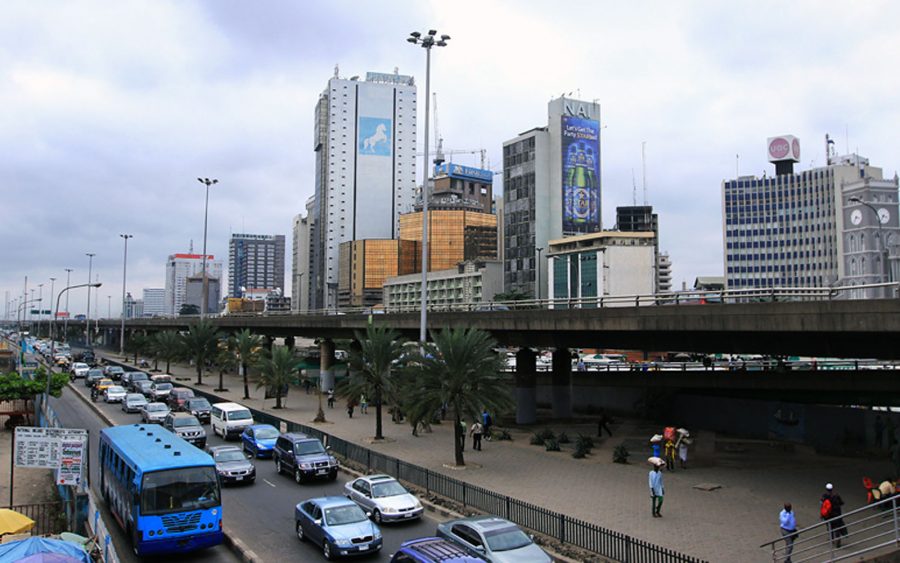Nigeria’s short-to-medium term growth outlook is constrained by a weak macroeconomic framework, policy uncertainty, and slow progress in the implementation of the already articulated structural reforms.
According to the latest World Bank’s biannual report, Nigeria’s economic growth in 2019 is expected to hover around 2 percent in the medium term, below its potential and population growth rate.
Growth hampered by Policy uncertainties
The World Bank stated in its report that the Nigeria private sector has been hampered by inadequate monetary and fiscal policies. Also, low growth potential has also been attributed to structural constraints. Inadequate monetary and fiscal policies severely limit medium-term growth outlook.
The World Bank equally noted that the delayed approval of the Medium Term Expenditure Framework 2019-2021 (MTEF/FSP) and 2019 budget, contribute to policy uncertainty, thereby postponing investment decisions across the sectors of the economy and foregoing potential growth-spurting injections.
Nigeria’s GDP lagging behind peer countries since 2016
Nigeria’s economic grew by 0.8% in 2017, below population growth rate estimated at 2.6%, and below the recession growth levels of 6%. The country’s recovery is also slower than in similar countries, mainly commodity exporters with large populations.
Nigeria’s non-oil sector remains weak and lacks adequate investments
The World Bank reported that the level of domestic credit in Nigeria is low and behind those of peer countries. The domestic supply of private sector credit growth is limited by the attractiveness of the high rates of the government (and CBN) securities.
It is instructive to note the Federal Government’s Economic Recovery and Growth Plan (ERGP) articulates the goal to drive economic growth, diversification, and job-creation with a special focus on the real sectors of agriculture, manufacturing (including MSME-led manufacturing), and energy; as well as key services.
However, The World Bank stressed that CBN financing and implementation of these schemes obscures the transparency of fiscal policy and reduces the effectiveness of the monetary policy.
Also, Poverty rises slowly with growth, while per capita income is falling
Half of Nigeria’s population is estimated to live in extreme poverty. The World Bank stressed that many of the poor live in rural areas, especially in the northern part of the country, where the private sector is less developed and human capital is low.
The combination of low growth, insufficient employment creation, and weak agriculture sector growth impeded improvements in household welfare, especially of low-income households. The social safety net is still weak and does not reach many of the poor.
Inflation in Nigeria rose significantly above average since 2015
Nigeria’s inflation reached over 18 percent in 2016, following currency depreciation and partial elimination of petrol and electricity subsidies. Although the structural peers recorded double-digit inflation in 2017 and 2018, these were, on average, still below the levels recorded by Nigeria.
Federally collected revenues continue to underperform
The total federally collected revenues (federation account oil and non-oil revenue, and the VAT) grew by 40 per cent in 2018 compared to 2017, only three-quarters of the budgeted federation account and VAT revenues were collected in 2018.
The World Bank highlighted a number of factors that contribute to this underperformance. Factors include budgeted figures without any significant tax policy changes, limited yields from tax administration improvements, the budgeting process not based on sound macroeconomic assumptions and increased unbudgeted fuel subsidies.
Global Economic Outlook
According to a global economy article published on International Monetary Fund (IMF) website today, Global economic activity was accelerating in almost all regions of the world a year ago, one year after, quite a lot has changed. According to the IMF article, the U.S-China trade tensions affected global trade and global monetary policy normalization have contributed to a significantly weakened global expansion.
“After the weak start, growth is projected to pick up in the second half of 2019.
“With improved prospects for the second half of 2019, global growth in 2020 is projected to return to 3.6 percent. This recovery is precarious and predicated on a rebound in emerging market and developing economies, where growth is projected to increase from 4.4 percent in 2019 to 4.8 percent in 2020.”
IMF stressed that given the rising risks coming from the global economy, Policymakers need to work cooperatively to ensure that policy uncertainty does not result in weak investment in the economy.
Nigeria Needs to grow the Private Sector in order to achieve growth potential
Nigeria’s public sector is among the smallest globally, and is marred with inefficiencies and coordination problems. Therefore, the medium-term growth trajectory depends largely on private sector development.
Nigeria improved 23 positions on the World Bank Ease of Doing Business (DB) index during 2016-2018, but it still ranks 146th in DB 2019, with room for improvement particularly in the areas of Registering property (184th), Trading Across borders (182nd) and Getting Electricity (171st).
To increase investors confidence, the World Bank noted that improving the business environment will be important. This should be done alongside a stable macroeconomic environment and strategic use of public capital investments that could further crowd-in private sector investment.
